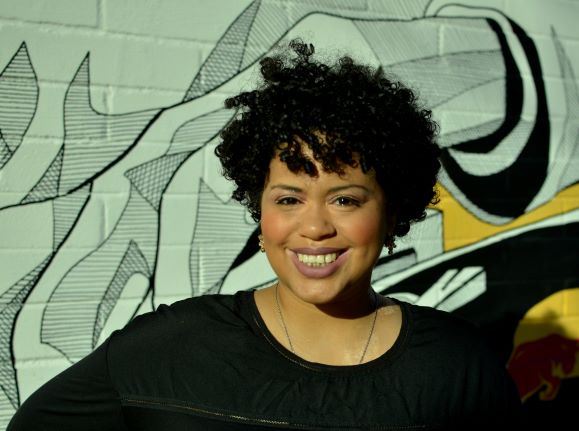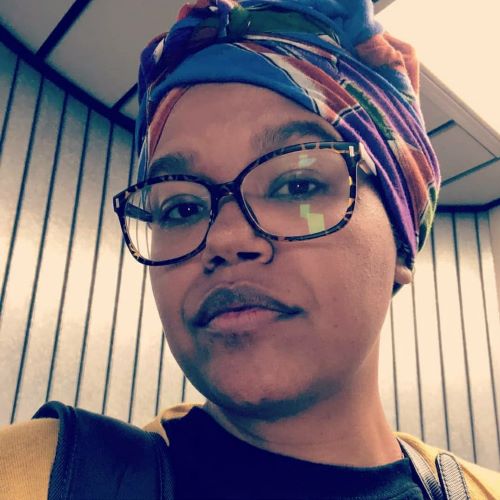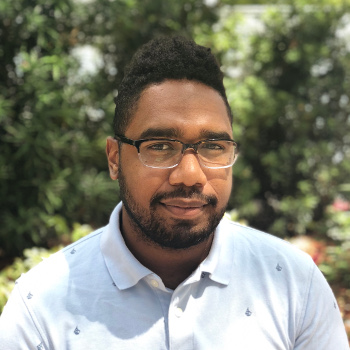Article begins
A few weeks ago, the Association of Latina/o & Latinx Anthropologists (ALLA) released a statement condemning anti-Black violence and calling for “an intimate reckoning with anti-Blackness and white supremacy that pervades our communities.” Such actions necessitate going beyond words of solidarity, like the phrase “Latinos for Black Lives,” which reinforce a commonsense of whiteness implicit in colonial projects. If we are to reject anti-Black racism, then we must take seriously Lorgia García Peña’s (2020) insistence that we acknowledge “the failure of the label ‘Latino/a/x’ to name our Blackness.” Like the colonial project of mestizaje, “Latinidad” reinforces a commonsense of whiteness that omits Blackness from the Latinx experience.
In this moment of uprising, it is critical that Latinx activists lean in right now in addressing the root causes of anti-Blackness as part of the bigger movement to stop the oppression of Black lives.
Black Latinx scholars have long recognized these failures: the failures to adequately capture the experiences of Black Latinxs with police surveillance and other systemic forms of inequality (Dinzey-Flores 2013); the ways that national narratives of race have essentialized Latinx Blackness into something palatable (Godreau 2015); and the failures to uplift the knowledges born from intersectional experiences of Blackness (Black Latinas Know Collective 2019).
But as the recent uprising following the murders of George Floyd, Breonna Taylor, Ahmaud Arbery, Tony McDade, and Elijah McClain, and the violence against countless others, such as Jacob Blake, have taught us, the conceptual and experiential knowledge on anti-Blackness extends far beyond academia. Its producers can be found on the streets, in our own families, in our classrooms, in the workplace, and in other spaces sticky with residues of privilege and oppression. I spoke with three Black Latinx activists who shared their personal experiences with anti-Blackness and their advice for confronting anti-Black racism in Latinx communities and beyond.
The interviews have been edited for length and clarity.
What do Black Latinx experiences add to the conversation of “Black Lives Matter” or, as we say in Spanish, “Las Vidas Negras Importan”?
Denise Diaz, co-director of Central Florida Jobs with Justice: In 2010, I was on the phone with my mom, an Afro-Puerto Rican woman in her early fifties with a heavy Spanish accent, who was just pulled over by a white police officer in a northwest suburb outside of Chicago. He said she didn’t use a turn signal. She wasn’t turning…In my Spanglish, I explain how she was racially profiled. She was angry and yet confused on what that meant. “Que tu dice?” She understood that this often was an experience for Black men like Rodney King with the police, but not her…The Black Lives Matter movement has compelled necessary conversations around dismantling anti-Blackness in the Latinx community and centering the experiences of Black Latinx people with police brutality. It is often an uncomfortable topic for Latinx families, partly because it is so prevalent and normalized in Latinx culture that there is often a disconnect, like in the case of my mother…Non-Black Latinxs can relate to similarly experiencing racial profiling and state violence. While these experiences are valid, it does not diminish the proximity to whiteness and privilege non-Black Latinx people are afforded in other ways.

Tyescha Nativity, outreach educator for Inside Out Youth Services: Race became a very huge issue very quickly in my life, particularly because people would always ask me, and still do, are you really Puerto Rican? For a long time, I didn’t know what that really meant, until I got older…The influences of Marcus Garvey and Malcolm X and Ella Baker and Assata Shakur really intrigued me, and even Schomburg, on how and who I was and molded me at a very early age…By the time I was like 15 years old, I was already saying that I’m Black, which was really interesting because my family didn’t know how to deal with that because they had a lot of anti-Blackness internally, which made me feel more passionate about being Black and more excited…It was hard for me being Afro-Latina because I wasn’t Black enough for Black Americans and I wasn’t Latino enough for Latinos…We’re at least having the conversation, because 20 years ago we were not having the conversation… I think part of it is that racismo has always been embedded in Latino culture and we don’t want to see it that way because we’re una raza.

David Caicedo, co-director of the Florida Student Power Network: I’m Afro-Colombian. I’m also the son of Colombian immigrants – first US-born child…That whole experience, I think that Afro-Latinx folks have already been contributing to that whole conversation for a while. But a unique perspective for me is just the immigrant experience. Remembering orders of deportation that my family received…I think that in Latin American culture, there’s so much anti-Blackness that happens, that I don’t even think that folks are aware… In Colombia, my parents were facing heavy racism. When I went to Colombia, I saw firsthand the racism against us, where it was just so bad. I think that just being able to talk to the Latin American communities, being able to identify with the immigrant struggle, being able to see the multiple layers of oppression that do exist…to help make the movement for Black lives more inclusive is something that I would say Afro-Latinx folks are contributing to the conversation.
How do we fight anti-Blackness in our own communities?
Diaz: In this moment of uprising, it is critical that Latinx activists lean in right now in addressing the root causes of anti-Blackness as part of the bigger movement to stop the oppression of Black lives. This moment is calling for the centering of Black lives and dignity. It begins with ourselves and extends to our families and broader communities. As a Black Latina living in Orlando Florida, it has been a long and liberating journey of recognizing how anti-Blackness shows up in my life and reclaiming my Blackness as part of my identity. It requires engaging uncomfortable conversations, learning how to be anti-racist and stop perpetuating anti-Blackness around you. I encourage people to learn more about the Movement for Black Lives platform and read the “Undocu Guide to Dismantle Anti-Blackness at Home .”
Nativity: We are asking white people to deal with their white privilege. When we come into spaces, we have to realize that we have privilege also. We have power and we need to stand behind our Black brothers and sisters and also talk about colorism in a real way. Like the realistic standpoint is that I am fair…I have a lot of privilege in that and I know that, and it’s about using my privilege to get in there and be like, fuck you, you need to allow my curly hair, dreaded, darker the berry, the sweeter the juice person up in front of this, and also giving them that space to be themselves. And on top of that, supporting them when they need to and allowing them to lead this course. But I think it’s going to start with us Latinos really contemplating what’s actually going on within the Latino community… And when we get into these spaces, we need to highlight the people that are being most oppressed. So trans Black people are being most oppressed, people that are in different social economic status that cannot afford a plate or do not have a place to live. You know what I mean? We’re dealing with so many different intersectionalities as Latinos.

Caicedo: That’s a loaded question. I think it starts up at home, having conversations, difficult conversations with your loved ones. Because once you can have a difficult conversation with your loved ones, everyone else becomes so much easier to talk to about it. And a recognition that we’re not doing this alone, that our experiences aren’t unique and that there are already organizations doing that kind of work…And then again, being vocal about the experiences and the need for Black voices to the amplified in different spaces…There’s a big call to defund the police, but there’s also a call to defund ICE. It’s the same state violence… Prisons are now owning a lot of the same detention centers that are violating the human rights of children and putting them in cages and separating families. It’s all the same system. We need to defund ICE. We need to defund the police. We need to demilitarize ICE, demilitarize the police. I think that’s a point also of connection, where like really our futures are tied together: immigrant communities with migrant communities, with the Black community, with the Latinx community. We’re being oppressed by the same oppressor.

